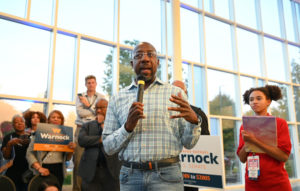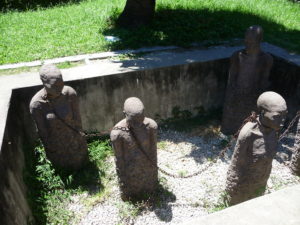The Long Shadow of Racism
The University of Oklahoma fraternity bus singalong shows that old-fashioned racism is alive and well in this country. f_lynx (CC BY-SA 2.0)
f_lynx (CC BY-SA 2.0)
WASHINGTON — See, I keep telling you that old-fashioned racism is alive and well in this country. After the fraternity bus sing-along at the University of Oklahoma, do you hear me now?
Frankly, the happy-go-lucky bigotry of the Sigma Alpha Epsilon (SAE) fraternity brothers — captured on video and shown to the world — shocked even me. And I was raised in the South, back in the days when Jim Crow was under assault but still very much alive.
It wasn’t just the repeated vow of eternal segregation, with its implication of white supremacy: “There will never be a n—– SAE.” To put it mildly, it was jarring to hear such young people — millennials, usually raised on an intellectual diet of diversity and inclusiveness — casually tossing around the vilest racial epithet as if they had been using it all their lives.
But the real stunner was the line describing what to do with any black man who might have the gall to seek to join their fraternity: “You can hang ’em from a tree.”
Whoa. Just like that, they went all the way to lynching? And thought it was funny?
Now, I realize that these soft, pampered, privileged, ridiculous frat boys are not likely to attempt actual violence against black people. But they wouldn’t have to. The attitudes their words reveal can, and probably will, show themselves in other ways.
Let’s imagine the video never surfaced. With halfway decent grades, degrees from Oklahoma’s flagship university and the connections that Sigma Alpha Epsilon’s old-boy network could provide, the boys on that bus could be expected to end up in executive positions with the power to hire and fire. What chance would an African-American job applicant have of getting fair consideration?
Or imagine that one of the boys ends up in the real estate business. Is he going to treat African-American buyers fairly? Or is he going to find ways to perpetuate the unofficial redlining that sustains patterns of racial segregation in neighborhoods across the country?
Maybe one of those boys might have developed an altruistic streak — or failed to find a job in his chosen field — and opted to spend a couple of years in Teach For America. He would have gone into the inner city with the attitude that he was among inferior beings. The students, of course, would have picked up on his disdain and returned it in kind — thus reinforcing his prejudices.
Does it ever end?
I’ve been an optimist, and I guess I still am, over the long run. But there’s no way around the fact that within that overall framework, the outlook is mixed.
It was heartening to see how quickly and decisively OU President David Boren moved to shut down the SAE fraternity and expel the offending students. I realize there are questions about whether the expulsions violated the students’ First Amendment rights, but I think Boren was right to take immediate action. Anyone who doesn’t like it can take him to court.
There is, after all, a context. Feelings are running high after the tumult in Ferguson, Mo., which still hasn’t ended. Early Thursday morning, after it was announced that the Ferguson police chief had resigned, two police officers were shot and wounded outside the police station.
I won’t relitigate the Michael Brown killing in Ferguson, or the Eric Garner killing in Staten Island, or any of the other deaths that have come to be lumped together under the banner “Black Lives Matter.”
But here’s the thing: The protest movement that arose last summer grew out of the sense that many in this society see African-American lives as disposable. Not really worth caring about. The main focus was on police departments, court systems, and the ways in which their interactions with African-Americans differed from their interactions with whites.
I believe we’ve paid too little attention to the big picture. There is still a shocking degree of racial segregation in American society — no longer de jure, but de facto. Segregation reinforces structural racism, which increasingly is not addressed or even acknowledged. Values such as diversity are almost universally celebrated publicly, but not always practiced privately.
Speaking last weekend at the 50th anniversary of the Selma-to-Montgomery march, President Obama said this: “We just need to open our eyes, and our ears, and our hearts to know that this nation’s racial history still casts its long shadow upon us.”
Listen with pride to the stirring oratory of the first African-American president. But also listen to the frat boys on the bus.
Eugene Robinson’s email address is [email protected].
© 2015, Washington Post Writers Group
Your support matters…Independent journalism is under threat and overshadowed by heavily funded mainstream media.
You can help level the playing field. Become a member.
Your tax-deductible contribution keeps us digging beneath the headlines to give you thought-provoking, investigative reporting and analysis that unearths what's really happening- without compromise.
Give today to support our courageous, independent journalists.






You need to be a supporter to comment.
There are currently no responses to this article.
Be the first to respond.